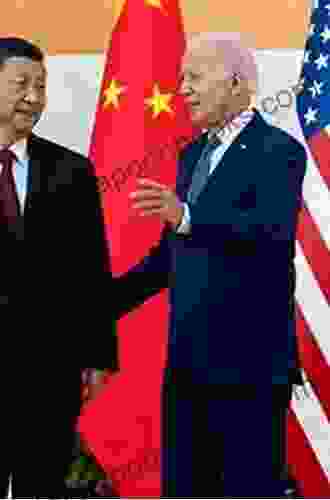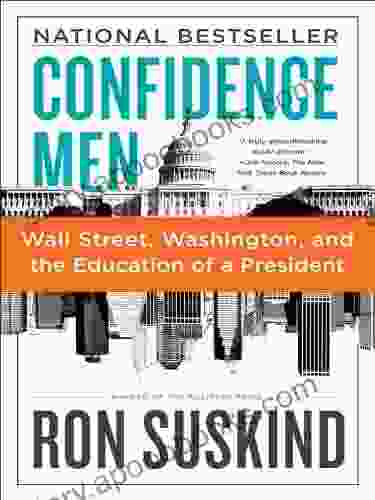China and the US Clash for Supremacy: Unveiling the Rivalry that Shapes the 21st Century

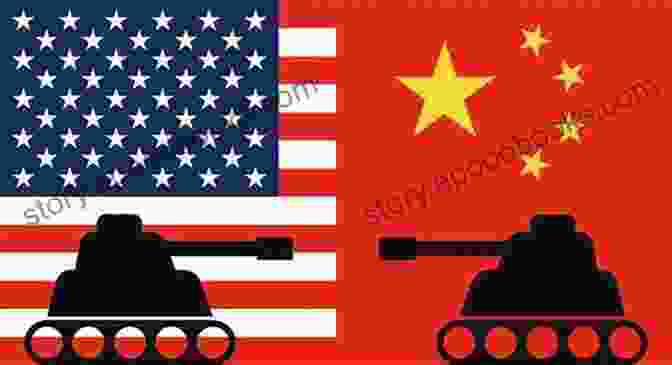
In the annals of international relations, no rivalry has captured the imagination and shaped the global landscape quite like the one between China and the United States. As two titans ascend to prominence, their collision course has become increasingly evident, sparking a race for supremacy that will undoubtedly determine the fate of the 21st century.
5 out of 5
| Language | : | English |
| File size | : | 724 KB |
| Text-to-Speech | : | Enabled |
| Screen Reader | : | Supported |
| Enhanced typesetting | : | Enabled |
| Word Wise | : | Enabled |
| Print length | : | 206 pages |
Economic Powerhouses
At the heart of the China-US rivalry lies an intense economic competition. China's meteoric rise in recent decades has propelled it to become the world's second largest economy, breathing down the neck of the long-dominant United States. The two countries are engaged in a relentless battle for technological supremacy, market share, and access to global resources.
China's massive population and state-directed economy have given it a formidable advantage in certain sectors, such as manufacturing and infrastructure. However, the United States remains a global leader in innovation, financial services, and technological prowess. As both countries strive to dominate the global economic stage, their economic rivalry inevitably fuels political tensions.
Ideological Clash
Beyond economic competition, the China-US rivalry is also driven by a deep-seated ideological clash. China's authoritarian communist system stands in stark contrast to the United States' democratic capitalist model. This ideological divide manifests itself in differing views on human rights, trade policies, and the role of government in society.
China's leaders have long defended their authoritarian approach as essential for maintaining stability and economic growth. They argue that Western-style democracy is incompatible with China's cultural and historical traditions. The United States, on the other hand, has consistently promoted democracy and human rights as universal values that should not be compromised. This ideological divide has fueled tensions between the two countries in a wide range of areas, from international diplomacy to trade.
Military Might
As economic and ideological competition escalate, so too does the arms race between China and the United States. China has been rapidly expanding its military capabilities, from its aircraft carriers and missiles to its cyber warfare capabilities. The United States, determined to maintain its military dominance, has responded by increasing its presence in the Asia-Pacific region and developing new defense systems.
This military rivalry has raised concerns about the potential for conflict between the two superpowers. While both sides have emphasized their desire to avoid war, the pursuit of supremacy has undoubtedly increased the risks of escalation. The 21st century has already witnessed numerous incidents in contested waters and airspace, raising fears that a single misstep could ignite a larger conflict.
Global Impact
The China-US rivalry is not merely a bilateral affair. Its implications reverberate across the globe, affecting the security, prosperity, and stability of the international community. As the two countries jockey for influence, they are forging alliances and shaping the global agenda.
China has sought to expand its sphere of influence through initiatives such as the Belt and Road Initiative, which aims to connect the Far East to Europe and beyond. The United States, in response, has sought to maintain its global leadership by strengthening its alliances and promoting a rules-based international Free Download. This geopolitical competition has created new fault lines and tested the alliances that have defined the post-Cold War era.
The Path Forward
The rivalry between China and the United States is a complex and multifaceted challenge that will continue to shape the 21st century. There is no easy path to reconciliation or resolution, as both countries have deep-seated interests and ambitions. However, it is crucial that the two superpowers find ways to manage their rivalry peacefully and avoid the pitfalls of conflict.
Dialogue and cooperation are essential. Both sides must engage in candid discussions to understand each other's perspectives and identify areas for potential compromise. Economic interdependence should be leveraged to promote mutual benefits and reduce the risk of escalation. Cooperation on global challenges, such as climate change and pandemic response, can also help build trust and foster a spirit of collaboration.
Furthermore, the international community has a role to play in facilitating dialogue and preventing the rivalry from spiraling out of control. Multilateral institutions, such as the United Nations and the G20, can provide platforms for constructive engagement. Regional organizations, such as ASEAN and the European Union, can also play a vital role in fostering stability and cooperation in their respective spheres of influence.
The China-US rivalry is a defining feature of the 21st century. It is a contest for economic dominance, ideological supremacy, and global influence. The outcome of this rivalry will have profound implications for the future of our world. While the path forward is uncertain, it is imperative that the two superpowers find ways to manage their rivalry peacefully and avoid the catastrophic consequences of conflict. Dialogue, cooperation, and multilateralism are essential tools for navigating this complex and challenging landscape. The future of the 21st century depends on it.
5 out of 5
| Language | : | English |
| File size | : | 724 KB |
| Text-to-Speech | : | Enabled |
| Screen Reader | : | Supported |
| Enhanced typesetting | : | Enabled |
| Word Wise | : | Enabled |
| Print length | : | 206 pages |
Do you want to contribute by writing guest posts on this blog?
Please contact us and send us a resume of previous articles that you have written.
 Book
Book Novel
Novel Page
Page Chapter
Chapter Text
Text Story
Story Genre
Genre Reader
Reader Library
Library Paperback
Paperback E-book
E-book Magazine
Magazine Newspaper
Newspaper Paragraph
Paragraph Sentence
Sentence Bookmark
Bookmark Shelf
Shelf Glossary
Glossary Bibliography
Bibliography Foreword
Foreword Preface
Preface Synopsis
Synopsis Annotation
Annotation Footnote
Footnote Manuscript
Manuscript Scroll
Scroll Codex
Codex Tome
Tome Bestseller
Bestseller Classics
Classics Library card
Library card Narrative
Narrative Biography
Biography Autobiography
Autobiography Memoir
Memoir Reference
Reference Encyclopedia
Encyclopedia Susan Ache
Susan Ache Rob Krider
Rob Krider Howard Kaplan
Howard Kaplan Laurie Notaro
Laurie Notaro Stanley I Grossman
Stanley I Grossman Tobias S Buckell
Tobias S Buckell Diane Andrews Henningfeld
Diane Andrews Henningfeld Morley Winograd
Morley Winograd Rafael Sabatini
Rafael Sabatini Lyudmil Tsvetkov
Lyudmil Tsvetkov Michael V Uschan
Michael V Uschan Laurence Holder
Laurence Holder Nicolas Carter
Nicolas Carter Zakes Mda
Zakes Mda Robert S Mueller
Robert S Mueller Lisa Cobble
Lisa Cobble Stephen Riley
Stephen Riley Tesla Pine
Tesla Pine Mary E Guy
Mary E Guy Sunil Kumar
Sunil Kumar
Light bulbAdvertise smarter! Our strategic ad space ensures maximum exposure. Reserve your spot today!
 Simon MitchellFollow ·4.6k
Simon MitchellFollow ·4.6k Wade CoxFollow ·4.4k
Wade CoxFollow ·4.4k Mitch FosterFollow ·9.4k
Mitch FosterFollow ·9.4k Martin CoxFollow ·17.1k
Martin CoxFollow ·17.1k Jayson PowellFollow ·11.1k
Jayson PowellFollow ·11.1k Junot DíazFollow ·5.3k
Junot DíazFollow ·5.3k Stephen KingFollow ·8.9k
Stephen KingFollow ·8.9k Gabriel MistralFollow ·9.9k
Gabriel MistralFollow ·9.9k
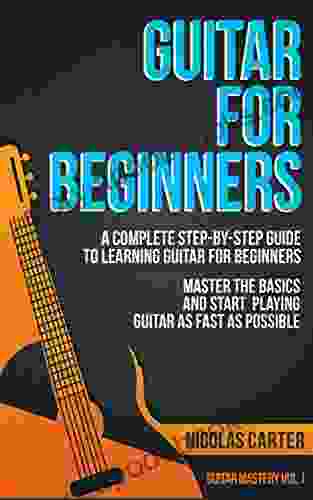
 Jorge Luis Borges
Jorge Luis BorgesUnlock Your Inner Musician: The Ultimate Guide to...
Embark on a Musical...
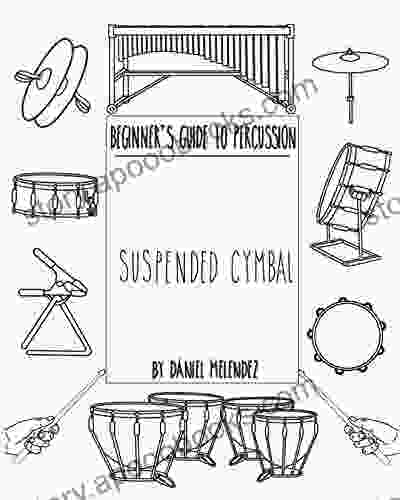
 Carlos Drummond
Carlos DrummondQuick Reference Guide To Percussion Instruments And How...
Unleash your inner rhythm with...

 Roberto Bolaño
Roberto BolañoUnlock Your Guitar Potential: The Ultimate Guitar Mastery...
Are you ready...

 Fred Foster
Fred FosterLooking for Lady Dee: A Punk Rock Mystery
By [Author's Name] Looking for Lady Dee is...

 Jacques Bell
Jacques BellJourney into the Mystical Realm of "Heaven Polly Alice...
In the tapestry of literature, where...

 Julio Ramón Ribeyro
Julio Ramón RibeyroSixty Years of Hits: A Musical Journey Through Time
Music has the...
5 out of 5
| Language | : | English |
| File size | : | 724 KB |
| Text-to-Speech | : | Enabled |
| Screen Reader | : | Supported |
| Enhanced typesetting | : | Enabled |
| Word Wise | : | Enabled |
| Print length | : | 206 pages |


